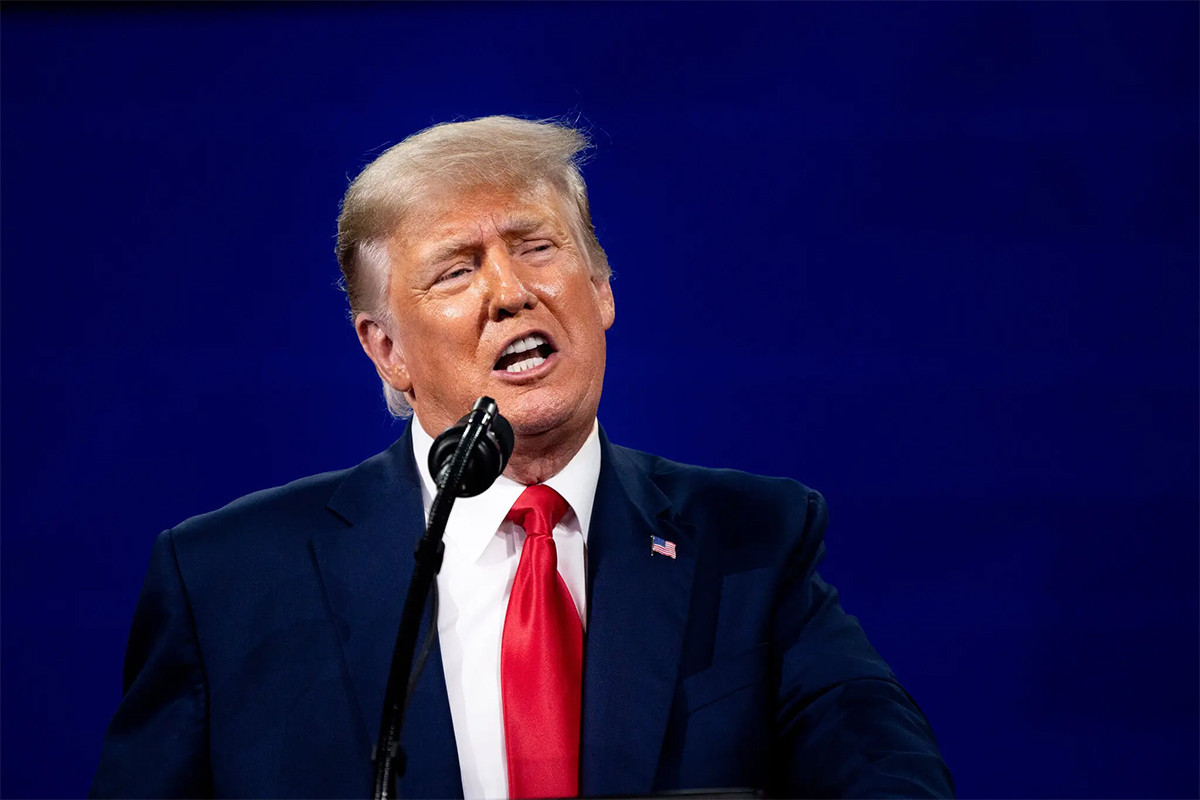
What is happening?
Recent political developments in the US, especially after the debate between former US President Donald Trump and US President Joe Biden, have prompted observers to predict Trump’s comeback. Even US newspapers and news channels such as New York Times and CNN, which often are inclined to support the Democrat candidates, have warned of the possible failure of US President Joe Biden in the election slated for November.
A panel of speakers at a workshop included former officials under the Trump administration who may be appointed to key posts in the next Trump reign.
Their speeches with the focus on ‘America First’, included recommendations about US policies for the next four years.
Observers believe that the most important impact that Trump’s return may have on Vietnam would be in trade. This is also a concern of other regional countries that have strong trade relations with the US, including Thailand, Malaysia, and Vietnam, which has the largest trade turnover with the US in Southeast Asia.
Vietnam-US trade
Under Biden’s administration, the US has made great efforts to reduce trade reliance on China by raising import tariffs and controlling imports from the country.
Most recently, Biden announced a plan to increase the tariff to over 100 percent on Chinese electric vehicles and 50 percent on semiconductor products. Tax increases have also been announced for other products of which China has advantages, including solar cells, lithium batteries for electric vehicles, and important minerals.
This move has helped Vietnam become one of the countries with great advantages in attracting FDI (foreign direct investment). However, this advantage would lessen if Trump is re-elected US President.
Though more and more investors have expanded their investment in Vietnam recently, most foreign-invested enterprises still rely on Chinese spare parts and accessories.
According to the Asian Development Bank, imported components in 2022 accounted for 80 percent of Vietnam’s export value of electronics, the major export item to the US.
For Biden, maintaining a good relationship with Vietnam is one of the top priorities in his political strategy for the region. This could be seen in the US’s continued willingness to improve the Vietnam-US relationship in 2023. With Biden’s visit to Vietnam last September, the two countries upgraded their relationship to a comprehensive strategic partnership.
However, under Trump, the current trade situation could become one of the major focuses in US trade strategy in Asia Pacific, especially if Vietnam continues to play an important role in the global supply chain and receives production activities relocated from China.
During his first presidency, Trump was dissatisfied about the US trade deficit with a number of countries, and launched policies to rebalance trade relations and protect US industries.
Trade performance under Biden, Trump
Despite good relations, Vietnam could not avoid trade tensions under the Trump administration in 2018-2020, which was blamed on the US trade deficit with Vietnam, which was $49.5 billion in September 2020.
In October 2020, the US Trade Representative (USTR) conducted two investigations to find out if Vietnam had carried out currency manipulation to subsidize exports, causing disadvantages to companies in the US.
This move followed a previous decision by the US Treasury Department accusing Vietnam of depreciating its currency, and launching a countervailing-duty investigation on imports of passenger-car and light-truck tires from Vietnam.
However, on the last day of the Trump administration, USTR released a statement saying that Vietnam’s monetary activities were unreasonable but the US would not impose sanctions.
Since then, the Biden administration has refrained from making public statements or conducting actions related to the previous investigations. Instead, Biden has focused on reducing trade deficits and promoting the two countries’ economic integration, thus helping maintain a stable relationship over the last four years.
In March 2024, when meeting voters in Ohio, Trump, in effect, sent a message to China, saying that the country should not expect to sell cars manufactured at factories it has built in Mexico if China doesn’t hire American workers.
The statement, many analysts say, should be seen as a warning to countries in a similar condition.
(to be continued...)
Pham Vu Thieu Quang